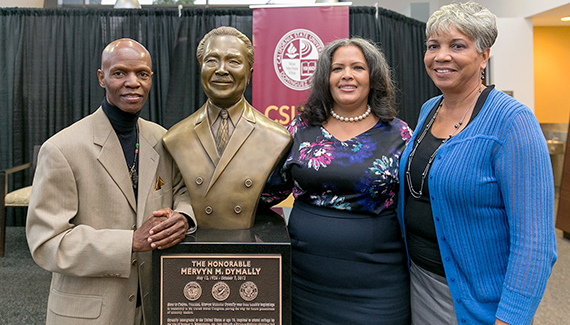
California State University, Dominguez Hills (CSUDH) officially named the Mervyn M. Dymally African American Political and Economic Institute on Nov. 12 and unveiled a sculpture of the legendary congressman as his friends, family and political colleagues gathered to pay tribute the “Godfather of African American politics.”
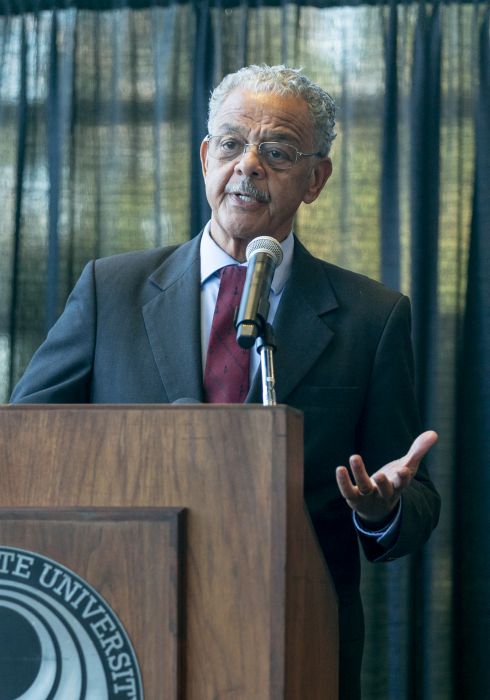
The reception took place on the 5th floor of CSUDH’s University Library, where the sculpture has been placed. Official public papers from the Dymally era will also periodically be on display there due to an inter-university agreement between CSUDH and CSU Los Angeles, where the papers are currently housed. The “rotating traveling exhibit” was coordinated by Brenda Riddick, interim executive director of the institute, and Lynn Dymally, the late congressman’s daughter.
“Everyone should understand and know what a powerful man Mr. Dymally was. He is the ‘godfather’ of all the individuals who have come up through the ranks over the years–African Americans and others–to be in the positions that they’ve been in, and are in today,” said Riddick. “There’s a lot of debt owed to this man, and it is my place to make sure that debt is carried out.”
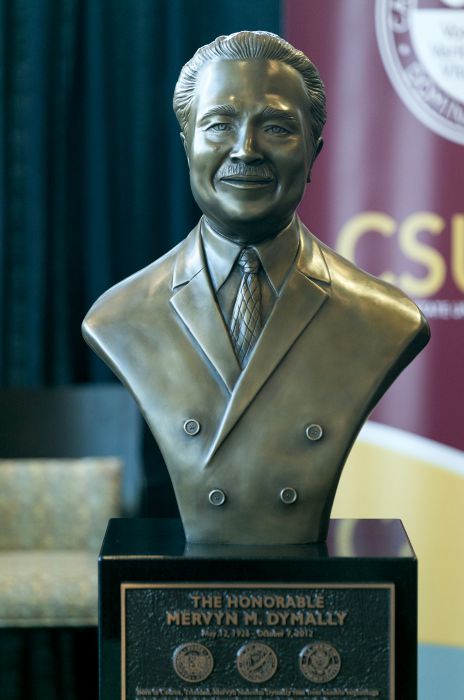
Opening the reception and emcee of the evening was Robert C. Farrell, former Los Angeles City Councilman (1974 until 1991), who frequently collaborated with Dymally on a “great variety of issues and mutual interests.”
When you went through the several programs and activities that Merv Dymally was responsible for, you knew you were going to be somebody. -Robert Farrell
“He didn’t just walk that path, he shaped it and broke new ground along it, showing us that there is always a way forward for those willing to fight for equality and social justice,” said Farrell. “When you went through the several programs and activities that Merv Dymally was responsible for, you knew you were going to be somebody. The energy of this man and what he brought to the table in the early 1960s was something that was absolutely revolutionary.”
The “Dymally Institute” is a non-partisan public policy center that collaborates with local workforce development agencies to educate and improve the viability of small businesses and nonprofit organizations through the facilitation of urban and economic community roundtable forums and workshops, which are held each semester at CSUDH.
The institute also researches, examines, and recognizes the past and present lives of African American political and economic leaders, and shares their impact on the communities they serve. And it fosters support for internal university initiatives and activities with a focus on African American political and economic issues.
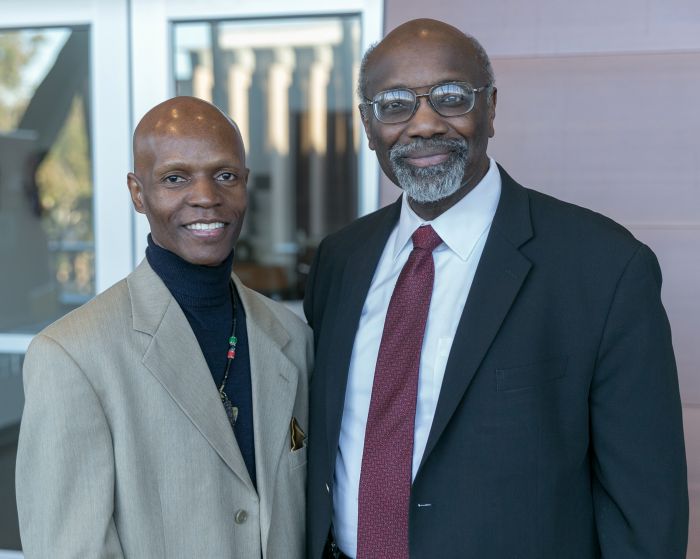
Earlier this year, the California Legislative Black Caucus supported and won approval for a $250,000 baseline appropriation in the state budget to ensure the institute can achieve its mission.
Dymally, who was the “brainchild” of the institute that now bears his name, served in nearly every house of governance in Sacramento: the California State Assembly (1963-1966), the State Senate (1967-1975), as the 41st lieutenant governor (1975-1979), and again in the State Assembly (2003-2008). He also held a seat in the the U.S. House of Representatives (1981-1993).
Dymally, a staunch advocate for education and a dedicated family man, achieved many “firsts” as an African American, including becoming California’s first foreign-born black state assemblyman; the state’s first black senator; the first black lieutenant governor; and the first foreign-born black elected to the House of Representatives, where he served six terms. He also served as chairman of the Congressional Black Caucus.
“We are very proud and we think it’s very important to have this institute on our campus, because like Mr. Dymally, we’re all about transformation through education. …We are committed at this university to making this institute one of the best, most highly regarded black think-tanks in the nation,” said CSUDH President Willie J. Hagan. “Now that we’ve taken on this institute and have accepted the [Dymally] name, we have to do it right. …We want this institute to be seen as a primary driver of powerful discussions that address some of the big questions in this state. And we’re not in this alone. We have the institute, we have legislative support, and we have the family’s support.”
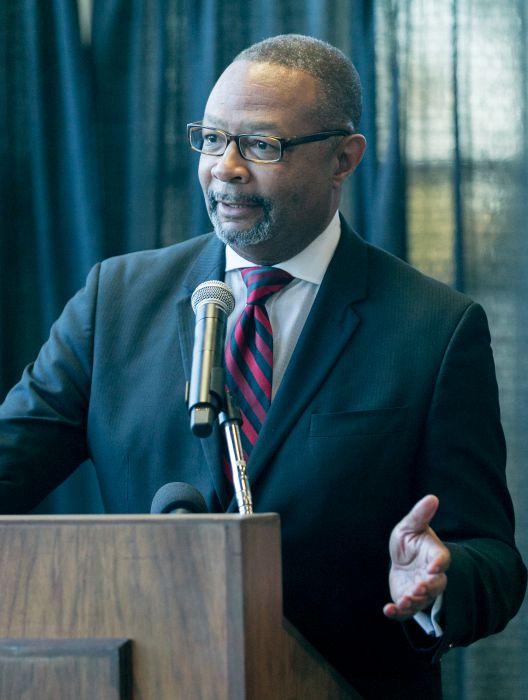
Nijel Binns, the artist who sculpted the Dymally bust, decided to let his “work speak for itself” and instead read a letter from Dymally’s “friend of 40 years” Martin Harmon, who donated the bust. He was then joined on stage by CSUDH leaders, members of the Dymally family, and other dignitaries to be photographed with his artwork.
After the unveiling, California Assemblyman Reggie Jones-Sawyer, chair of the California Legislative Black Caucus, called Dymally a “true legislature,” and said that when Dymally got to the floor of the assembly that “he made things happen. He made laws happen.”
“He taught many of us that we need to go beyond just showing up at ribbon cuttings; go beyond just being an elected official. We had to be statesmen, and Mr. Dymally was a statesman. And that’s what we all try to obtain every day in the assembly,” said Jones-Sawyer, who then turned his attention to President Hagan. “So on behalf of the Legislative Black Caucus–Dr. Hagan–this institute is now the academic home for every member of the California Legislative Black Caucus. Not only will we obtain funds this year to keep it going, but all 12 of us are going to fight to get you more money next year.”
Click here to view additional photos.